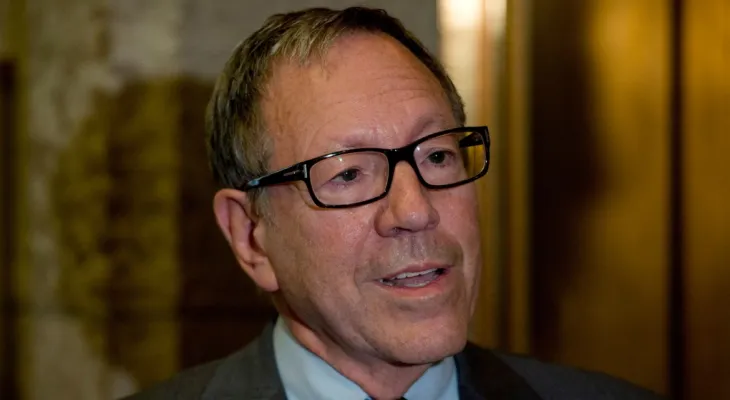Search here
Newspaper
Search here

Arab Canada News
News

Published: October 1, 2023
The former federal justice minister stated that "the failure of indifference and inaction" regarding Canada's history with Nazis in the country likely contributed to Parliament's recognition of a Nazi veteran in the House of Commons last week without anyone's knowledge, and that he wants to see nearly 40 years of documents released concerning suspected war criminals living in Canada.
The efforts to disclose the documents come amid ongoing fallout after Parliament's recognition of 98-year-old Pyarslav Hunku, a Ukrainian veteran who fought in a Nazi unit during World War II.
Hunku was invited to the House of Commons by Speaker of the House Anthony Rota – who has since resigned over the scandal – during Ukrainian President Volodymyr Zelensky's visit to Ottawa.
The incident caused outrage and embarrassment both locally and internationally, and since then Prime Minister Justin Trudeau has apologized on behalf of all parliamentarians.
They have also renewed calls to disclose portions of the Deschenes Commission report investigating war criminals, which was conducted in 1985 into more than 800 cases of individuals accused of war crimes and suspected of having fled to Canada after World War II. Many of the findings from the investigation and the final report remain redacted.
Irwin Cotler – the former federal justice minister who also served as a legal advisor to the Canadian Jewish Congress during the Deschenes Commission – told CTV News question host Vassy Kapelos in an interview aired on Sunday that he has long called for the unsealed release of more of the investigation report.
Cotler explained, "As has always been said, sunlight is the best disinfectant, and we need to be fully transparent so that we can achieve the necessary understanding of what actually happened."
"And in order to secure the necessary justice that has been lacking, and so that we can also correct the historical record, and so we can move forward in the pursuit of justice and not find ourselves in situations like what happened in Canadian Parliament, where we inadvertently immersed ourselves in historical falsehood," he added.
The commission found that hundreds of members of the 14th Waffen SS Galicia Division were living in Canada by the mid-1980s, according to Canadian press, but Judge Jules Deschenes said that membership in the division itself does not constitute a war crime.
Cotler stated that the government could disclose the records without necessarily compromising confidentiality in some cases.
"I appeared before the commission myself; I served as a counsel before that commission. There is evidence that should be made public."
He also said, “We need to know the full truth, and as I said, sunlight is the best disinfectant and the best guarantor of justice for all.”
Cotler also pointed out that Parliament's recognition of Hunku and the hesitation to disclose Deschenes Commission records reflects Canada's history of "the ongoing failure to bring Nazi war criminals to justice."
He stated, "Everyone was disturbed" by Parliament's recognition of Hunku, but "the bigger question, which was initially ignored, was how he got to Canada in the first place, and why there was no accountability once he arrived in Canada."
He added, "This has been a failure here due to indifference and inaction on the part of successive Canadian governments, and as a result, we have become a haven for Nazi war criminals, with no accountability resulting from that."
He is now calling on Canada to "take the lead" and establish an independent international court to investigate Russian President Vladimir Putin's invasion of Ukraine.
The government will not commit to disclosing the records, and at the same time, the federal government has not committed to releasing Deschenes Commission records.
Steve MacKinnon, a government official, told Kapelos in an interview aired on Sunday as well that the incident that occurred in the House of Commons last week gave all Canadians, including the government, the opportunity "to reflect on these issues and continue to fight anti-Semitism."
But when pressed on whether this might lead to the release of more of the investigation report, MacKinnon did not indicate his position.
MacKinnon also would not commit to making changes to the vetting process for parliamentary guests or to implementing formal mechanisms to ensure a similar incident does not occur again.
However, MacKinnon said the next Speaker of the House – to be elected on Tuesday – is likely to "consider these very matters."
He added, "I have no doubt that more rigor, more rigor than has been applied to this particular situation, will be applied in the future. And perhaps that will be doubly true when we welcome world leaders and give speeches in the House of Commons."
Immigration, Refugees and Citizenship Minister Marc Miller, while on his way to a Liberal caucus meeting earlier this week, stated that the declassification of some records is something "we can look at again," but "not knowing what is in those documents." He cannot say either way whether he supports the idea.
Comments